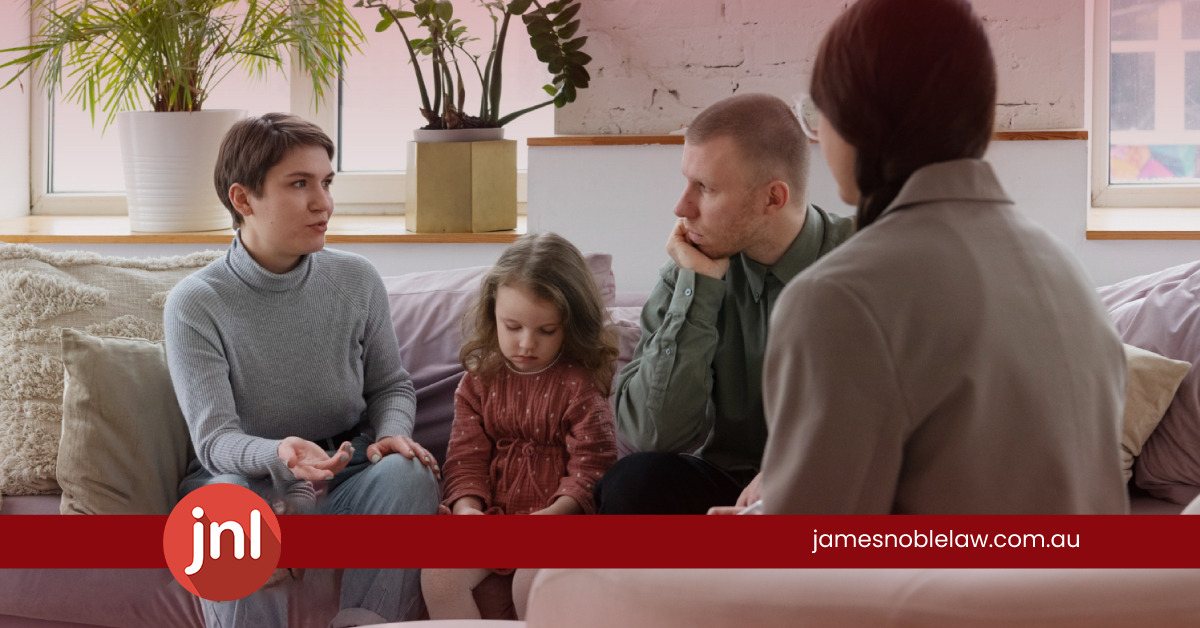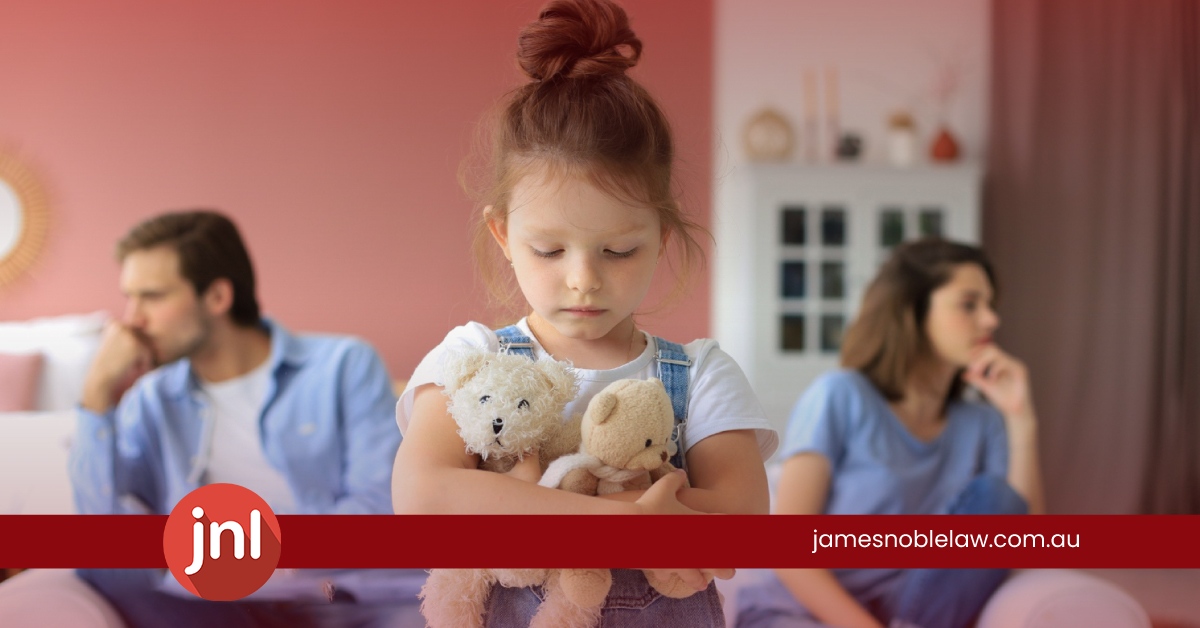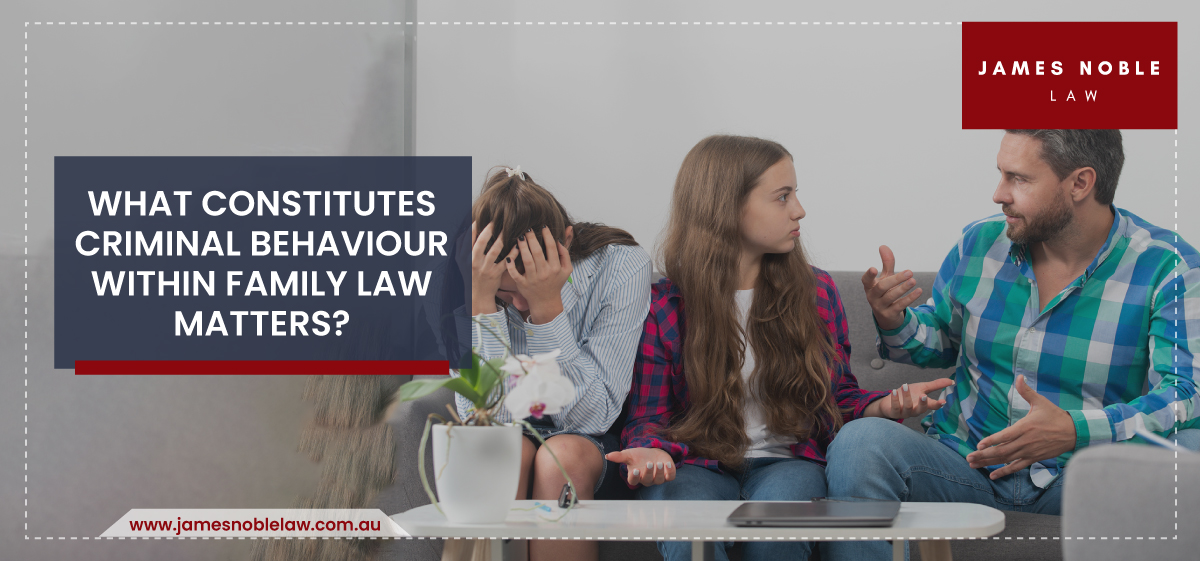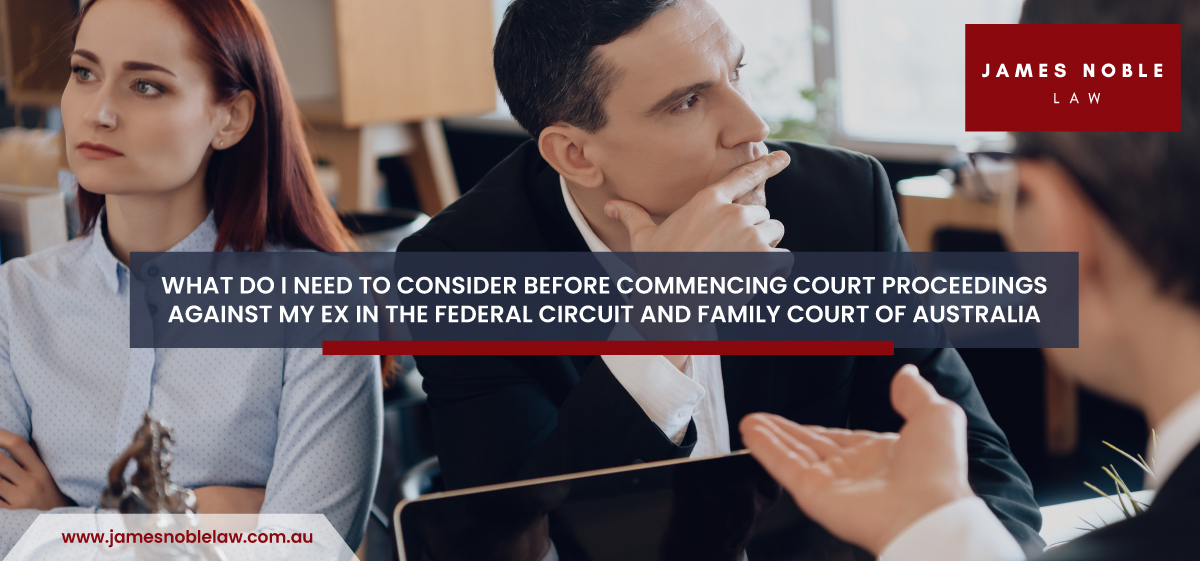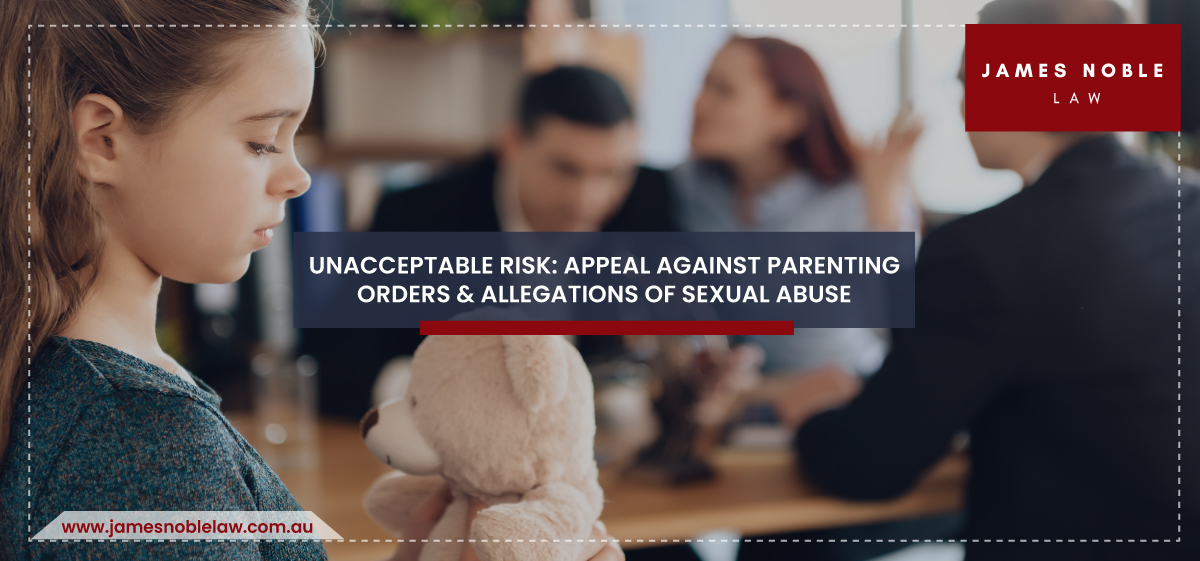Navigating Child Custody Disputes in Cairns: The Role of Mediation and Section 60I Certificates
Child Custody Disputes in Cairns In Cairns, the Family Law Act plays a pivotal role in shaping the resolution process for parents embroiled in disputes over their child's parenting arrangements. A crucial step mandated by this Act is the attendance of mediation for parents who cannot reach an agreement on their own. Before initiating an Application for a parenting Order in the Federal Circuit and Family Court of Australia, they must first obtain a Section 60I Certificate, a prerequisite highlighting...
Read More
Navigating the Name Change Process: A Guide for Parents and Guardians
If you find yourself in a situation where changing a child's name is necessary but obtaining consent from the parents listed on the original birth certificate proves challenging, you may need to seek an Order from the Magistrates Court. Here's a concise guide to help you through this endeavour. Step 1: Initiating the Process [caption id="attachment_17681" align="alignright" width="350"] Name Change Process[/caption] Begin by completing the Originating Application (Form 5), available on the court's website. This form must be submitted in...
Read More
Child Relocation Cases in the Cairns Family Law Courts
Child relocation cases in the Cairns Family Law Courts, like in any other jurisdiction, can be emotionally charged and legally complex. These cases arise when one parent seeks to move away with their child or children, and the other parent opposes the relocation. Deciding on such matters is always a challenging task, as it requires the court to balance the interests of both parents while keeping the best interests of the child at the forefront. The Legal Framework [caption id="attachment_17505"...
Read More
Essential Guide to Child Custody and Parenting Plans in Cairns
Navigating Child Custody, Parenting Arrangements and Parenting Plans in Cairns: What You Need to Know Child custody is a sensitive and complex issue that often arises during or after a divorce or separation. In Cairns, like the rest of Australia, family law prioritises the best interests of the child when determining custody arrangements. Understanding the key issues and legal considerations related to child custody and parenting plans is crucial for anyone going through this challenging process. Understanding Child Custody in...
Read More
Supporting Children Through Separation: Understanding the Psychological Impact
The Psychological Impact of Separation on Children: Offering guidance on how parents can support their children during and after a separation [caption id="attachment_17065" align="alignright" width="300"] Supporting Children Through Separation[/caption] Separation can be devastating for all individuals involved, particularly when there are children in the picture. Extensive social science research demonstrates that the effects of separation upon children can manifest in multiple ways throughout their development. A major life change, such as divorce or a de facto relationship breakdown, can foster...
Read More
Aboriginal Child Protection : Safeguarding Aboriginal and Torres Strait Islander children
[caption id="attachment_17000" align="alignright" width="300"] Aboriginal Child Protection[/caption] In representing Aboriginal and Torres Strait Islander children, there are clear and specific issues that the ICL must consider. Foremost of these is section 60CC of the Family Law Act 1975 that specifies that in considering the best interests of a child, the court must consider the child’s right to enjoy his or her Aboriginal or Torres Strait Islander culture (including the right to enjoy that culture with other people who share that...
Read More
General procedures to be followed when an ICL has been appointed
Who should be advised? The ICL must file and serve an Address for Service to advise the court and the parties of their appointment. The ICL is to advise all necessary agencies, for example, the Federal Circuit and Family. Court’s Court Children’s Service and the State Welfare Authority, of their appointment. To the extent that such information has not been made available as a result of responses to Notices of Child Abuse, Family Violence or Risk, the ICL is to...
Read More
Relationship Between a Child and an Independent Children’s Lawyer (ICL) in Family Law
Professional Relationship between a Child and an ICL The child has a right to establish a professional relationship with the ICL. In considering any views expressed by the child and the steps to be taken in a matter the ICL is to be aware: that each child will have different emotional, cognitive and intellectual developmental levels, family structures, family dynamics, sibling relationships, religious and cultural backgrounds; and that children are vulnerable to external pressures when caught in disputes involving their...
Read More
A Guide to Changing Child’s Surname
Joint consent is required for Changing Child's Surname Section 4 of the Family Law Act (Cth) 1975 considers changing a child’s surname to be a major long-term issue in relation to the care, welfare, and development of a child. In Queensland, a child’s surname can only be changed with the consent of both parents listed on the child’s birth certificate. If there is consent by both parents, a joint application to the Registry of Births, Deaths and Marriages can be...
Read More
What is an Independent Children’s Lawyer (ICL)
Independent Children's Lawyer (ICL) [caption id="attachment_16543" align="alignright" width="350"] Independent Children's Lawyer[/caption] RELEVANT LAW The Family Court has inherent jurisdiction and hence power to control its own proceedings including the power to appoint and discharge an ICL. Such power is by its nature discretionary. Specifically, the power to appoint an Independent Children's Lawyer (ICL) is provided at s 68L of the Family Law Act 1975 (Cth) (“The Act”). Section 68LA sets out the role of the ICL as follows: 68LA...
Read More
Can I Take My Child Overseas Without Telling My Partner?
Can I Take My Child Overseas Without Telling My Partner? Traveling with a child overseas is usually a decision for both parents to make, if they share parental responsibility for the child or if there are Court Orders in place. Both parents are typically required to sign Passport Applications for their children. Parents should attempt to reach an agreement amicably about such travel decisions and consider attending family dispute resolution in the event that a disagreement arises. Studies have shown...
Read More
What is an ICL ?
Independent Children’s Lawyer (ICL) So your parenting matter is in Court and the Judge has made an Order for an Independent Children’s Lawyer to be appointed in your matter. What is an Independent Children’s Lawyer (ICL) and why has this Order been made? Independent Children’s Lawyers, more commonly referred to as ICL’s are independent separate legal representatives who act on behalf of the child or children who are the subject of the Court proceedings and ensure the best interests of...
Read More
Child Support and Family Law
Child Support Act and Family Law Child Support Act, It is commonly recognized that both parents have a financial obligation to contribute towards the cost of raising their child. The national Child Support Agency under Services Australia is responsible for delivering the child support scheme in addition to regulating, collecting, and administering child support services. They are your first point of call for any child support queries you may have. In Australia, the relevant child support legislation is encapsulated in...
Read More
What Is The Critical Incident List?
Critical Incident List The Federal Circuit Court and Family Court of Australia implemented a new Court process referred to as the ‘Critical Incident List’ as of Monday 6 June 2022 which was rolled out in all states and territories excluding Western Australia. The Critical Incident List aims to expedite the Court process for vulnerable families that need to make urgent arrangements for children where no parent is available due to circumstances such as death (including homicide or suicide), critical injury...
Read More
Child Impact Report vs Family Report – What’s the Difference?
Child Impact Report vs Family Report – What’s the Difference? [caption id="attachment_16555" align="alignright" width="350"] Child Impact Report vs Family Report[/caption] If you are involved in a litigious parenting matter concerning the future care arrangements for your children, it is likely that you have heard the terms ‘Child Impact Report’ or ‘Family Report’. Both documents constitute an independent expert opinion provided to the Court by a suitably qualified Child Court Expert, Psychologist, or Social worker, after a review of court documents...
Read More
Criminal Behaviors within Family Law Matters
Over the past few years, criminal law and family violence have increasingly interconnected with family law and child protection matters. At times family law matters, especially when involving children, can often reveal the complexities within a family, and therefore it is not uncommon for these complexities to also include some criminal elements which in family law can also be considered family violence. It is important to understand that this does not necessarily mean that the criminal elements/family violence are due...
Read More
Navigating the Court System Unvaccinated
Australian Court System about Unvaccinated Despite the Coronavirus pandemic continuing to make waves across the country, it is not compulsory to be fully vaccinated against COVID-19. Presently it is up to an adult individual to make this decision for themselves or a parent to make this decision for their underage child. The right to make such a decision is typically referred to as “freedom of choice”. At James Noble Law we support and respect everyone’s right to make the choice...
Read More
What do I need to consider before commencing Court Proceedings against my Ex in the Federal Circuit and Family Court of Australia
From 1 September 2021 the Federal Circuit Court and Family Court of Australia has implemented new Pre-Action Procedures that must be adhered to and followed prior to anyone commencing Court proceedings. The aim of the Pre-Action Procedures are to give the matter a chance at resolving amicably before the pathway of litigation is commenced. The new Pre-Action Procedures are set out in Schedule 1 of the Federal Circuit Court and Family Court Rules 2001 and include the following: Providing the...
Read More
Unacceptable risk: Appeal against parenting orders & Allegations of sexual abuse
In a recent Appeal of a decision of the Family Court of Australia, the Appellant Court reviewed orders between the parties in respect of their two children under Pt VII of the Family Law Act 1975. The orders made provision for the children to live with the mother and for her to have sole parental responsibility for them. Relevantly, however, the orders also made provision for the children to spend time and communicate with the father and required the parties to ensure the...
Read More
What Are Considered The Best Interests of the Child?
In parenting matters, the Court’s main focus is making orders that align with the children’s best interests as this remains the paramount consideration. But how does the Court determine what is in the best interests of the child? There is no hard and fast rule for this. Each case is decided depending on it’s own circumstances and there are a number of considerations the Court takes into account. These considerations are broken down into “primary” considerations and “additional” considerations. The...
Read More





